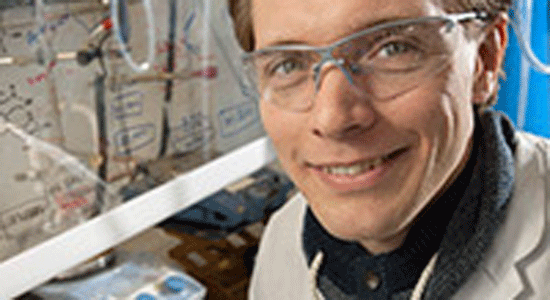Profile and Career
As a graduate with an MSc in Medicinal Chemistry, you have completed a research-based degree programme underpinned by the following subject areas: medicinal chemistry, structural chemistry, advanced organic chemistry, and peptide and protein chemistry - core subjects relevant in drug discovery.
The programme has a particular focus on the following core areas, which distinguishes this MSc in Medicinal Chemistry from similar programmes at other universities:
- structure-based drug research
- peptide modification
- radiopharmaceutical chemistry
Your qualifications as a Medicinal Chemistry graduate are applicable in other contexts in the pharmaceutical, biopharmaceutical, and biotechnical industries, for example, in connection with the design, production, and development of potential new drugs.
If you are considering a career in pharmaceutical research and industry, the MSc in Medicinal Chemistry from the University of Copenhagen is an excellent springboard.
The development of new drugs is a long and complicated process, and graduates hold a key roll as bridge builders between the many experts involved.
The programme offers great flexibility regarding elective courses and projects, which enables students to create a specialised academic profile.
For inspiration, please read the research case stories below reflecting the three main research areas.
Knowledge
When graduating, you will have acquired knowledge about:
- The rational basis for design and development of drugs
- New and effective methods of synthesis for incorporation of the most important functional groups
- The relationship between molecular structure and biological activity at the molecular level, including the importance of steric, stereochemical, conformational and electrostatic factors
- Structural chemical methods that can be used in the rational design of drugs
- Solid-phase methods of synthesis used to make peptides and peptide derivatives, including peptidomimetics
- The significance of conformational, steric and electronic factors with regard to regio- and stereoselective syntheses of drug candidates
- Physical-chemical parameters important for the development of potential drug substances.
Skills
You are able to:
- Analyse and evaluate methods of synthesis to choose an optimal strategy for the synthesis of a target molecule
- Design, plan, and conduct advanced syntheses on the basis of a critical review of articles in international journals and patent literature
- Use and critically evaluate results achieved by modern computer-based methods for structural-activity analyses of biologically active compounds (potential drugs)
- Explain the key principles used for the rational basis of design and development of new drugs
- Explain the most important chemical, physical-chemical and pharmacokinetic properties of important groups of drugs
- Explain the properties and reactivity of heteroaromatic compounds
- Plan chemical modifications of proteins and estimate the effects.
Competences
You are able to:
- Plan, carry out and report on research and development projects. For example, related to the design and production of new small molecule and macromolecular drugs in cooperation with scientists from other disciplines
- Plan and conduct advanced organic chemical syntheses as well as syntheses and modifications of peptides, proteins etc. relevant to the pharmaceutical and biotechnological industries.
The educational profile is in high demand, because the programme is pharmaceuticals-oriented and focuses on medicines and the development of drugs and related products.
You can expect to find work in the area of the pharmaceutical, biopharmaceutical and biotech industry that conducts research into new drugs. In the industry, you will work with other research scientists in the drug field to design and synthesise new compounds with the potential to become future drugs.
Another important job area for medicinal chemists is working with patent experts and others to ensure that new drugs are patented.
Examples of employment opportunities
- PhD programmes in organic chemistry, radiopharmaceutical chemistry and/or medicinal chemistry.
- Development of new radioactive entities including routine production of radiopharmaceuticals for diagnosis and therapy at hospitals and pharmaceutical companies.
- Patenting such as positions in pharmaceutical companies and private- or public-sector patent agencies.
- Developing effective, safe, robust synthesis procedures for use in high-volume production of the active drug substance.
- Chemistry and manufacturing control (CMC) as an employee of a parent company or a Contract Research Organisation (CRO).
- Regulatory affairs and Quality Assurance/Quality Control (QA/QC).
The University of Copenhagen is located in the midst of one of the world’s leading biotech areas – Medicon Valley – home to almost 300 ‘life science’ companies. The School of Pharmaceutical Sciences is known for its extensive collaboration with industry.
One of these collaborative endeavours is the school’s own Drug Research Academy (DRA), where a number of Danish biotech and pharmaceutical companies co-finance PhD scholarships. DRA covers all key research areas in drug development from research, development and production to clinical testing.
This close concentration of biotech and pharmaceutical companies in the region coupled with the school’s collaboration with industry provides good opportunities for students to build contacts to future employers during their studies.
There are excellent opportunities to find student jobs related to the field and to initiate thesis projects at one of the many companies in the area.

